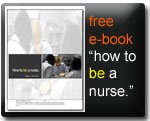Nurses from the Caribbean Community and Belize are present in the city for the 2 week workshop aimed at reviewing previous examinations held in October of last year and April of this year. The Regional Nursing Council is made up of representatives from thirteen Caribbean countries.
"We have a common examination, similar to the CXC that all registered nurses take on completion and this gives them license to practice. We have representatives here from ten of the thirteen countries.” said Marjorie Parks, Chief Nursing Officer for Belize. “In Belize we have about 500 nurses total but that is no way enough to meet all our health needs but nurses have to go through rigorous training. Our nurses in Belize train at a bachelor’s level at the University Level. We have several nursing programs but the program to prepare registered nurses is for four years and they come out with a degree."











